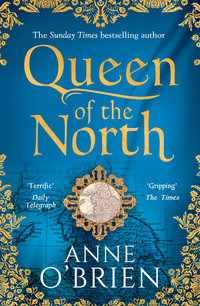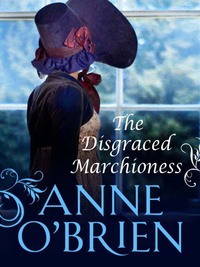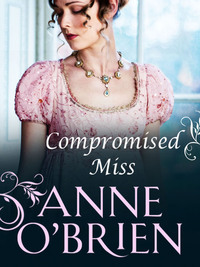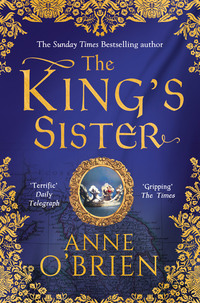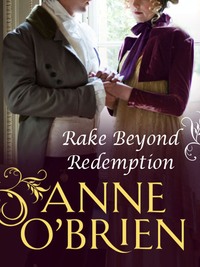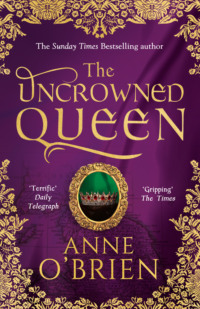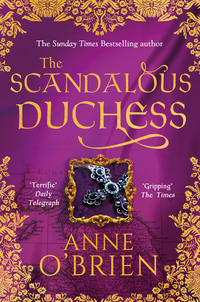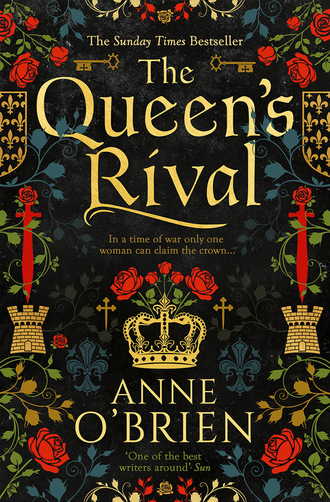
The Queen’s Rival
Now those we love and esteem are brought together, by fate, on a battlefield.
As women we can change that outcome. We are not without influence. We should not waste our days in devising vengeance for past slights.
I beg you, your grace, use sweet words to draw our King back from the brink. As I will use mine with my lord the Duke of York.
Your defeat at Blore Heath at the hands of my brother, the Earl of Salisbury, will sit ill with you, but now is the time to negotiate and heal the wounds. If we cannot extricate ourselves from this tangled mess, the fields beside Ludford Bridge may well be soaked in English blood before nightfall tomorrow.
With all humble reverence,
Your lowly servant
Cecily, Duchess of York
Marguerite, Queen of England, to Cecily, Duchess of York
Written from the royal pavilion at Ludford Bridge, on this tenth day of October 1459
Madam
Your empty words carry no weight with me. When the Duke of York takes up arms against my lord the King on a battlefield, it is treason. I recall your kindness in the past, but those days are long gone, drowned in Lord Audley’s blood. Further death can only be prevented if York is prepared to bow the knee and sue for mercy.
Somerset remains my most cherished advisor. York will do well to remember that.
I have no pity for your present situation.
Marguerite, Queen of England
England’s Chronicle, October 1459
Blood and death on a battlefield, Englishman facing Englishman.
How have we been dragged into this fine goblet of disaster?
Is there anyone alive in this unfortunate country who does not know?
We have a King whose mind is not to be relied upon.
We have a Queen who sees the lure of power for herself and her young son.
We have a royal cousin, the Duke of York, whose views are ambivalent. Does he wish to be an efficient Protector and Counsellor to our sad King? Or does he desire the crown for himself?
Our noble Duke is haunted by a vast array of enemies who will undermine his reputation for honesty and hard work on behalf of the King. The Beaufort Duke of Somerset is the most dangerous. So much for the Love Day travesty of renewed friendship last year, when all erstwhile antagonists walked hand in hand, arm in arm. An event that we would all happily forget since it achieved nothing but a mockery of our King’s attempts to heal the enmity between his most powerful magnates.
Now it seems that the adherents of York and Lancaster will face each other on a battlefield at Ludford Bridge.
We advise you to pray for a fast resolution. For which side you will pray is a matter for your own conscience. Duchess Cecily will be praying hard for her husband, despite the array of Neville relatives who still cleave to King Henry and the Lancastrians.
Cecily, Duchess of York, to her estranged sister Anne, Duchess of Buckingham
Written from our castle at Ludlow, on this tenth day of October 1459
Sister, written in haste so excuse the scrawl and blots,
Do not give up on my letter and consign it to the flames before reading past the first sentence. I am writing to tell you that by the end of tomorrow your sister and her closest family may well be dead in a ditch or taken prisoner as traitors.
I can hear your thoughts already, loud and clear from distant Kent, accusing Richard of desiring the crown for his own supreme ennoblement. Unfair, Anne! That is and never was Richard’s desire, no matter what Queen Marguerite might announce to the world.
The King’s army is outside our gates. I do not know what information you have, but it would be remiss of you if you allowed yourself to become cut off from these dangerous developments. I feel it my duty to write in warning for we will not emerge from this unscathed, although who will suffer most – you or I – cannot yet be determined.
When we were children, who would ever have predicted that, through marriage, we would have become enemies, cleaving to opposing sides in battle, you for Lancaster, me for York. It wounds my heart, but what is done, is done.
I am presuming that your misguided husband Humphrey Stafford, Duke of Buckingham, is at this very moment within shouting distance of us here in Ludlow, with the Lancastrian army at King Henry’s side. I can only hope that Henry is not the man for waging war, that he will withdraw and agree to parley, but as Richard says, the King is not always in command of himself, much less his armies.
Neither one of us, Anne, can deny that Henry has proved dilatory in recent years, even when he appears to be in control of his senses.
Richard is confident there will be no battle. He says that we are as well prepared as we could be with ditches and palisades of stakes, with well-set ambushes and traps. We have cannon set in place. Nor will Richard fight, unless provoked beyond reason.
This was Richard’s final reassurance as he left me to inspect the soldiery that inhabit, like a plague of rats, every corner of the town and castle. Which should comfort me, but it does not. Do you think Buckingham might use his considerable weight to persuade Henry to negotiate? I know he is a man of good sense and moderation, if he can but capture the King’s flea-hopping attention from my cousin Somerset’s constant aggression. You should know that Marguerite has refused any kindly intervention. She stands like a beacon on a hill-top, agleam with regal authority and vicious recrimination. All of our past closeness is buried under acrimony and fear.
I am afraid, Anne. My sons Ned and Edmund are with Richard on the battlefield. I know they are of an age to be there, but I fear for them, particularly Edmund who is not as robust as his brother. Meg, George, and Diccon remain here with me at the castle, although George claims he should fight beside his father. He is already almost as tall as I, but then it has to be admitted that I cannot boast of any degree of stature. At this moment he is polishing his weapons.
Oh, Anne, do we not both know what it is to lose children to death? I cannot imagine your grief at the loss of your only son and Buckingham’s heir, from his wounds from a Yorkist sword after the Battle of St Albans. At least you and Buckingham could be consoled that he had a son of his own, your grandson, to inherit the dukedom.
I cannot even consider the loss of my sons to Lancastrian swords, on my own doorstep here in Ludlow.
I do not expect compassion from you. The political rifts have been dug too deep. All I can ask is that you petition the Blessed Virgin and Holy Mother for a peaceful outcome, and understand that it was never my intention to be at odds with you. It is the way the world works when men have ambitions.
From your sister who, despite all, loves you as much as she ever did.
Cecily
Duchess Cecily’s intercession to the Blessed Virgin Mary
Hail Mary full of Grace, the Lord is with thee.
Blessed art thou among women
And blessed is the fruit of thy womb Jesus.
Holy Mary, Mother of God,
Pray for us sinners now and at the hour of our death.
I raise before you the names of those dear to me, who even now stand at the forefront of their forces on the battlefield. In your blessed mercy, preserve them, keep them safe, nurture them in their decisions and bring them safe home. If they must face death, give them courage and fortitude.
I pray that you do not give credence to anything my cousin, Henry Beaufort, the Duke of Somerset, might offer up in his prayers. He has proved, in all his dealings with the House of York, to be nothing less than a serpent in the royal grass. He would perjure his soul before telling the honest truth.
Amen
Richard, Duke of York, to Cecily, Duchess of York
Written from Ludford Bridge
Cecily,
Marguerite encourages the King to break out his banners and don armour, as if he were a true soldier and leader in battle, which we know he is not. The King would rather sit in his pavilion and read his missal, but the Queen has him firmly under her heel. I fear that the mummery of the King in full battle array is having the desired effect, filling our troops with awe. There is much desertion, our soldiers abandoning the battlefield to flee or skulk in the streets of Ludlow.
I will negotiate with the King, but never on Somerset’s terms.
Whatever the outcome, never doubt the esteem in which I hold you, nor my dedication to the future of our children. You are the one shining candle in the present darkness.
Richard
Chapter Two

Disaster Threatens the House of York
Duchess Cecily faces her worst fears in Ludlow Castle, the twelfth day of October 1459
It was midnight, the darkest hour when barn-owls called and bats flitted noiselessly, caught as black shadows in the gleam of the guards’ lanterns. I was sitting on my bed, sleepless, book in hand, but the Life of St Maude with her piety and charitable works did not keep my attention, not even her clever involvement in the tenth-century politics of Bavaria. The children were asleep, exhausted by the excitement and tensions in the coming and going of mounted men and cart-loads of supplies.
All my senses leaped into nervous life when there came the distant clatter of a disturbance at the main gate which provided access into the town. I had already cast aside the book by the time a servant, who had been given instruction to keep me abreast of all events, no matter how trivial they might seem, tapped on my door. I dragged a heavy robe over my shift to follow him down the stairs. If it was an opportunistic attack from the royal army I would trust our watchmen to keep the barbican gate closed. But how had a hostile force managed to circumvent Richard’s careful defences and reach the centre of Ludlow? Forcing myself not to run, I climbed to the vantage point at the top of the old gatehouse keep, pulling up my hood over my braided hair.
My throat was dry with fear.
What I saw made my heart thud in a heavy beat, for the barbican gate was already open, distant figures moving in the outer bailey, our guards offering no resistance to these incomers with their escort. There were no banners, no visible heraldic symbols to indicate who they might be.
The beat of my heart thudded loudly in my ears.
A small group, tight-knit, rode across the expanse towards the inner gateway below me. I leaned forward, my fingers curled hard around the coping stones. But then my heart slowed at what I saw. I remained where I was, as they rode beneath me into the inner bailey. I knew exactly who my late-night visitors were in spite of dark enveloping cloaks.
By the time I had descended they had all dismounted, allowing me to pick out a quintet of strained faces as hoods were pushed back or helms removed. A potent mix of Nevilles and Plantagenets. My brother Richard Neville, Earl of Salisbury, my nephew, another Richard, Earl of Warwick. My sons Edward and Edmund. And Richard, my Richard, Duke of York. Already in urgent and low-voiced conversation, before I could even ask what was happening, Richard left the group, took my arm and pulled me into the guards’ antechamber, dispatching its only occupant with a tilt of his chin.
‘What’s happened?’
My fingers dug into the cloth of his cloak as they had dug into the stone revetment. I could read nothing in his face in the light of the single torch.
‘Disaster.’ His voice was a croak.
‘Why are you all here? Has there been a battle?’
For if it was a disaster, where was the rest of the army? We had heard no noise of conflict or conflagration. For the first time I noted the groove between Richard’s dark brows as he leaned close, his voice low. This was not meant to be overheard.
‘A pardon came, apparently from the King, if we would lay down our arms, a pardon I thought not to be trusted. It had the imprint of Somerset all over it. Or perhaps the Queen, to lure us into surrender and so into a trap. But Andrew Trollope, God damn his soul to hell, the man in command of Warwick’s main force from the Calais garrison, accepted it, declaiming to his troops that he had never wanted to fight the King in person.’
‘Could he not be persuaded?’
We were both whispering. Whatever had occurred was worse than I could imagine, nor should it be spread abroad.
‘He gave me no chance. The last we saw of Trollope was a retreating cloud of dust, taking his men with him. I took the only decision I thought left to us. I sent a letter to the King, asking for a parley. The reply came back, almost immediately, that he would not. He would do his negotiating with arms and battle in the field.’
‘Did he write it? It doesn’t sound like Henry. Marguerite perhaps.’
‘Who’s to know?’ For a moment he sounded so weary. ‘It will be a battle and without Trollope’s men we are lost. There will be no mercy. I misjudged it, Cis. How could I misjudge it so badly?’ Richard rubbed his gloved hands over his face as if to clear his vision. ‘Henry looked every inch a warrior, standing proudly tricked out in armour under his royal banner. Even his thinning hair managed to gleam in a kingly fashion beneath his crown. Our troops were weak at the knee at the sight. And there it is. We daren’t risk a battle. They’ll all go over to him as their King within seconds of a Lancastrian call to arms.’
I could see defeat, engraved deep in the lines from nose to mouth. His familiar features had become a bleak map of failure.
‘What will you do?’ I knew without asking, but dreaded the reply.
‘We have no choices left. It must be flight.’
I could not hide the horror in my face. ‘You have abandoned your men?’
This was no time for my censure. Many would say it was not the place of a woman to express disparagement, for what developed on a battlefield was man’s work. But this was a step beyond treason against the King. For the puissant Duke of York to abandon his troops was anathema. These were our men, our tenants, our soldiery, born and bred in loyalty to their Plantagenet lord.
‘Have you disbanded them and sent them home?’ I persisted.
I could almost see his face flush in the shadows, but his voice was edged with his own righteousness, his own belief in what must be. ‘No. I have not. We need time, and to disband the army would give Henry freedom of action to pursue us here to the gate of our castle. The army remains in place until tomorrow. I have told our officers that we have retired here for the night, and that we will return at dawn. The Lancastrians will see nothing amiss until we have gone.’
‘Richard…’ I did not like it. I did not like it at all, but could think of nothing to say. He had made the decision.
He sensed the tenor of my silence, as he would after more than thirty years of marriage, through good times and worse. ‘I know. It’s bad, but we must redeem what we can from a desperate situation. Henry will not wage war on common soldiers. It’s us he wants. If we stay we will be taken prisoner, if not killed outright. That will be the end of our cause.’
I thought that he was trying to convince himself that our men would not be obliterated by his decision to escape. I held his hands, willing him to tell me that flight was not the only possibility, but I knew, as clearly as he, that they must get out of England before the royal hounds were slavering at their heels.
‘We’ll go in different directions,’ he was explaining, already planning, while I had moved no further than the despair that he would leave me. ‘I’ll take Edmund with me into Wales and from the coast we’ll take ship to Ireland where I know I’ll be welcomed. My years as King’s Lieutenant in Ireland will stand me in good stead. I’ll make my base in Dublin.’
How confident he was, or at least sounded – possibly for my sake – that this journey would not entrap him into the hands of his enemies.
‘Salisbury and Warwick will go south and they have agreed to take Edward with them. When they reach the coast, they’ll take ship and join us in Dublin or make for Calais. Either move will be safe. With the boys travelling separately, there is at least the chance that one of them will survive to continue to lead the House of York.’
My family stripped from me in this one momentous decision, in which I had had no voice at all. I had considered the outcome of battle. I had not accepted that I might be abandoned to face the Lancastrians alone.
‘When do you go?’ I asked, my voice steady.
‘I can’t stay any longer than this hour.’ He was as calm as I in the circumstances. ‘We must go immediately before anyone can raise any sort of alarm.’
‘I understand.’
And I did. But surely there was one question I must ask.
What of me? What of those three young children asleep in their beds?
My lips parted to ask it, only to be prevented by an embrace and a hasty kiss before he put me from him.
At the door he turned, his voice breaking in bitter self-condemnation, full of despair.
‘I abandoned my army, Cecily. I abandoned my banners. They are lying there to be trampled on, come the day. All the pride and glory of York to be buried in mud and ignominy.’ His eyes, wide and despairing, held mine. ‘And now I must abandon you. You did not ask. I honour you for it. But I cannot take you and the children with me. Time is too short, and I must get our sons away before they fall into Lancastrian hands. Oh, Cis, my dear love. What have I done?’
He strode back towards me, enveloping me in his arms as he had done so often, in cold departing or joyful arrival. At the same time he whispered in my ear. I replied in kind, but then placed my fingers on his lips to silence him. No time, in this chill guard-room with dawn fast approaching, to express what might be in our hearts.
They were sentiments that I would remember for ever.
And then: ‘Keep the gates bolted, your guards set,’ he commanded, returning to practicality. ‘They’ll not get in and they’ll not harm a woman and children. Whatever his weaknesses, Henry has more chivalry than to do that.’
But what about Marguerite? What of her chivalry?
Another question I dare not ask.
‘I have no doubt of the quality of your courage. The Nevilles were all bred up in adversity and pride. Keep faith with our people here. Will you promise me?’
‘I promise.’
‘You will never know the depth of my gratitude.’
Now his kiss was deep and wretched indeed. I clung to him for a second, absorbing the essence of him, for what might be the final time.
‘Go, Richard. Go before the huntsman sounds the three long motes for the hounds to seek the hart. You will be hunted most fervently by the Duke of Somerset.’
‘But by God’s will, we will escape and take refuge.’
‘Amen.’
Out into the cold air of the inner bailey, there was one more burden to lie heavily on my heart. I must bid farewell to my two sons, for how long I could not imagine.
‘May the Blessed Virgin keep you safe from harm,’ I said, a soft benediction as all was clamour and activity around us.
A grip of hands, a light kiss of farewell, cheek against cheek. This was no time for excess emotion. Ned was eager to be away, his gaze already straying towards the impressive bulk of his cousin of Warwick, but Edmund remained and shivered under my grip. There was only a year between them but Edmund still had much growing to do, in confidence as well as in height and breadth of shoulder.
‘You will bear yourself nobly as a son of York,’ I encouraged him. I would worry over this son more than I would over Ned.
‘Yes, madam.’
‘You will be the first to tell me that you have no time for accepting maternal advice on your conduct, but pay heed to your father’s instructions. Be strong in the faith that I have instilled in you and in your duty to your proud name.’
Edmund bowed his head as if taking a solemn vow before an altar. I felt him straighten, his spine stiffen. He was already taller than I.
‘I swear that I will, madam. I swear that you will be proud of me.’
‘It is time to go. I look for the day when we will be reunited.’
I was pleased to see him walk with more assurance as I pushed him in Richard’s direction. A woman’s tears or anxieties would bring nothing to this emotional occasion.
‘Farewell, my love.’ My final words to Richard. ‘God keep you and bring you home.’
‘Uphold the honour of the House of York,’ he replied, ‘the honour which I have this night all but buried. I will keep you in my mind and my heart.’
‘As you will remain in mine.’
Surprising me, he drew me close in the darkness, running the pads of his thumbs over my brows, my cheekbones, my lips, along the line of my jaw.
‘Just so that I can remember you,’ he said, ‘when time and distance between us seem too vast.’
The last I saw of my warlike family, they were riding for the outer gate, supplied with money and food for what could be a long journey.
I was beyond tears. I could not imagine when I would see Richard again, or any one of them. I returned to my chamber where, with deliberate self-control, I dressed for the coming day when I must face the Lancastrians. I would stay here in Ludlow, as I promised Richard that I would. I would hold firm to that promise and protect our people with every remaining breath in my body.
Recorded by the private hand of Cecily, Duchess of York
I am alone and Richard has gone, fled from Ludford Bridge, leaving me to record the manner of his flight. Cowardly. Dishonourable. Contemptible. Despicable. The denunciation of my lord clamours in my head.
That is what they will say of Richard. These words will be written in history, in my husband’s blood. Richard of York, the great lord who betrayed his wife and children to the marauding Lancastrian army to save his own neck. Who abandoned his army and relinquished his banners on the battlefield because he dared not face his King. The chroniclers will look to me for condemnation, for would I not join my diatribe to theirs? The Duchess of York must surely disavow her loyalties to an ambitious husband who left her behind.
What had he said in those final minutes together, when we could have merely spoken of our love for each other? I record his words here, for my own encouragement in future times of despair, when hope dies within me. Do not let them turn you against me, he said. We have lived and fought side by side for so many years. I need you to believe in me.
Oh, Richard, how could I not believe in you? But why leave me to face the enemy alone? We were capable of riding as hard and as fast as the rest. Why not take us out of danger, for our safety?
And why had I not, in the end, voiced my fears? Why had I not demanded to be rescued from what would become a second battlefield, here in the streets of Ludlow?
I had not asked because I knew all the answers and I already understood all the thoughts that had not been spoken between us. The questions I had wanted to ask and had not because time was too short. Who would know Richard and the working of his mind better than I?
If he had remained to face the royal army, it would have been more than the carefully worked and gilded flags that suffered. It would have been catastrophic defeat, leading to almost inevitable capture and death by the edge of the axe. Flight might save his life and that of our sons. And life meant hope of return, to put wrongs right.


